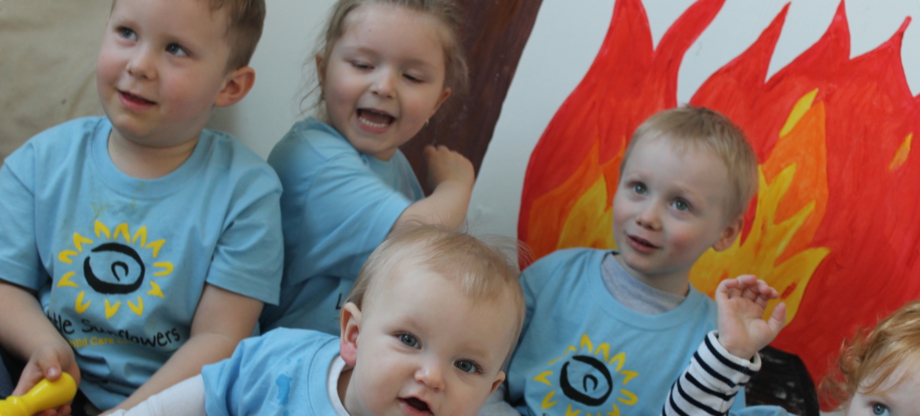
Little Sunflowers Curriculum
Every child is unqiue, whilst the curriculum that we follow is set, the way we approach learning and development for each child is not. We work with each child to ensure they are getting the most out of what Little Sunflowers can offer, giving them the flexiblity to develop at their own pace.
Little Sunflowers uses a key person system, your child's key person will be responsible for working with you during the settling in process, responsible for maintaining their profiles by using the information gained through observations to document their development and plan for the next stage in their education journey. Although a child's key person will be the parents main point of contact, all of our staff care for all the children and will happoly provide feedback developmental proress on a daily basis or discuss any concerns you may have.
Throughout the day there are a mixture of freeplay unitiated activities as well as planned actvities for children of all ages to take part in.
The Early Years Foundation Stage
Little Sunflowers Child Care, like all nurseries in England, follow The Early Years Foundation Stage. The Early Years Foundation Stage (EYFS) sets the standards that all early years providers must meet to ensure that children develop, both socially, academically, emotionally and physically in the safest and healthiest way. It gives us the guidance needed to allow us to teach effectively a broad range of skills and knoweldge ready for the next stage in their educational journey.
The EYFS seeks to provide:
- quality and consistency in all early years settings, so that every child makes progress and no child is left behind
- a secure foundation through planning for the learning and development of each individual child, and assessing and reviewing what they have learned regularly
- partnership working between practitioners and with parents and/or carers
- equality of opportunity and anti-discriminatory practice, ensuring that every child is included and supported
The EYFS sets out:
- the seven areas of learning and development which shape children's play and experiences
- the early learning goals stating the knowledge, skills and understanding children should have at the end of the academic year in which they turn five
- the requirements for measuring children's progress and reporting to parents and/or carers
- the safeguarding and welfare requirements you must follow to keep children safe and promote their welfare
The seven areas of learning:
- communication and language.
- physical development.
- personal, social and emotional development.
- literacy.
- mathematics.
- understanding the world.
- expressive arts and design.
Whilst all seven areas of learning and development are important and interconnected. The first three areas are prime areas of learning which are vital for sparking children's curiosity and enthusiasm for learning, forming relationships and building their capacity to learn.
The four remaining areas are called specific areas of learning, through these areas of learning prime areas are strengthened applied.
Little Sunflowers Pre- School
Pre-school sessions are held every day and children attend a varied amount of sessions, depending on the day of their attendance at the nursery. The idea of pre-school is to develop concentration and work alongside the Early Years Foundation Stage Curriculum with activities to encourage number and letter recognition, first reading skills, mathematical skills, pencil control and lots more. Though we try to achieve a classroom environment the time in pre-school is relaxed with an emphasis on learning in a fun, encouraging way with lots of hands-on experimenting and practical work.
